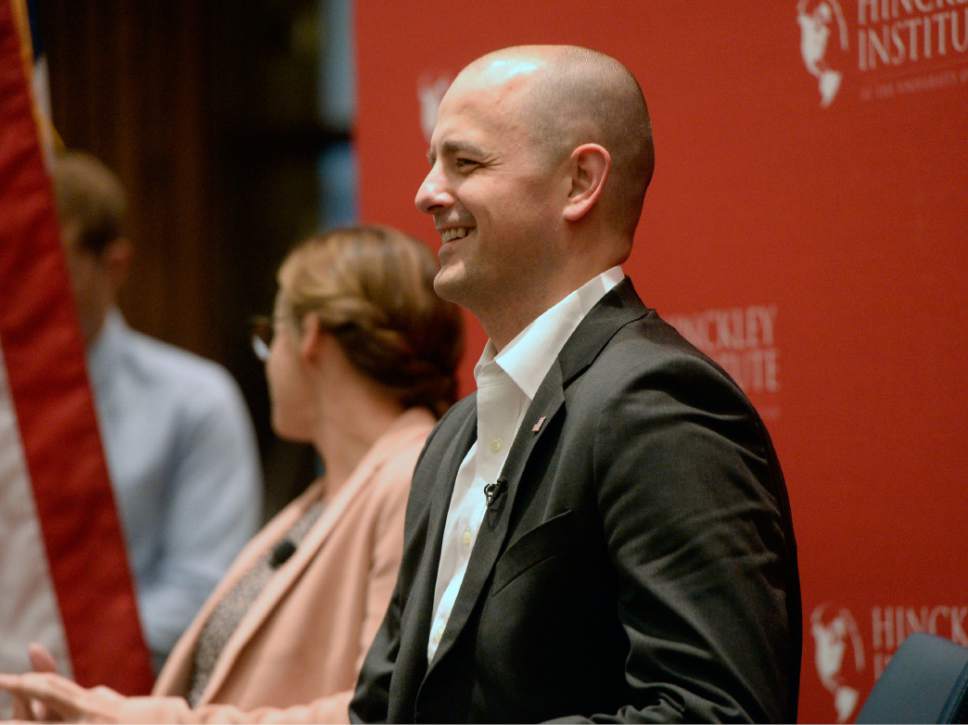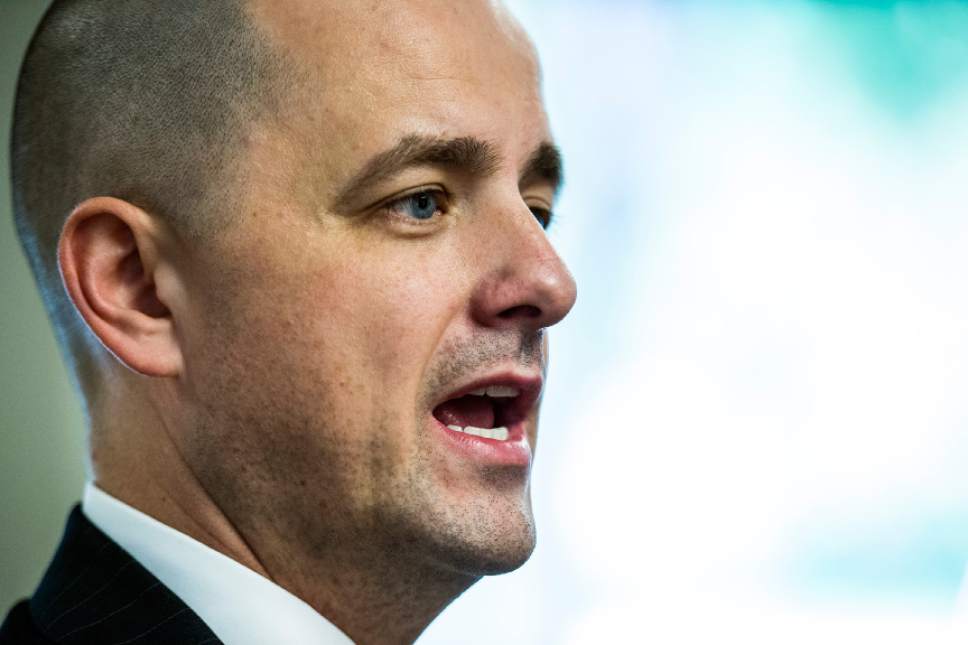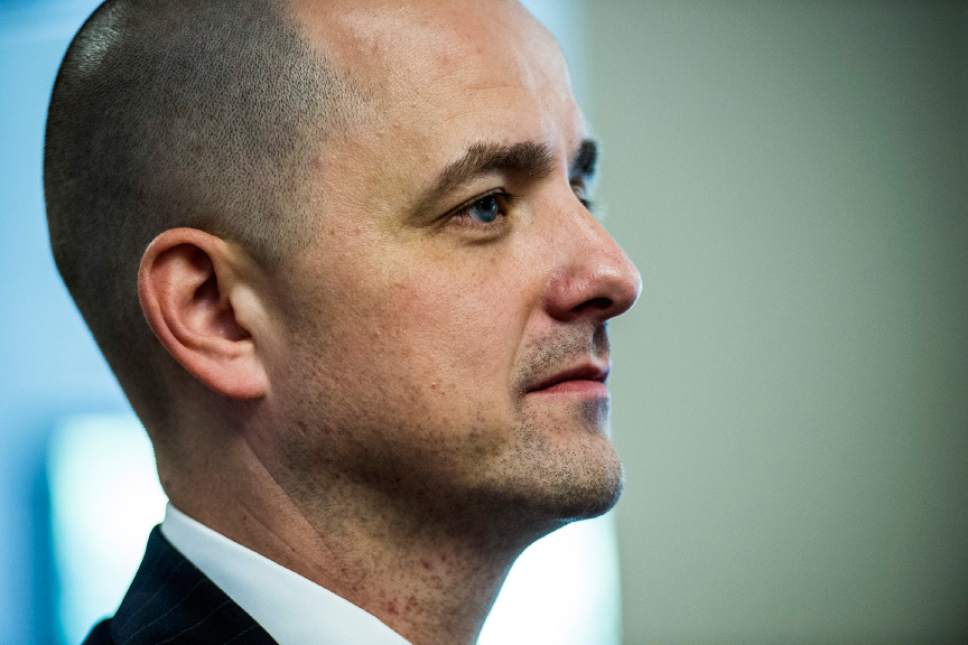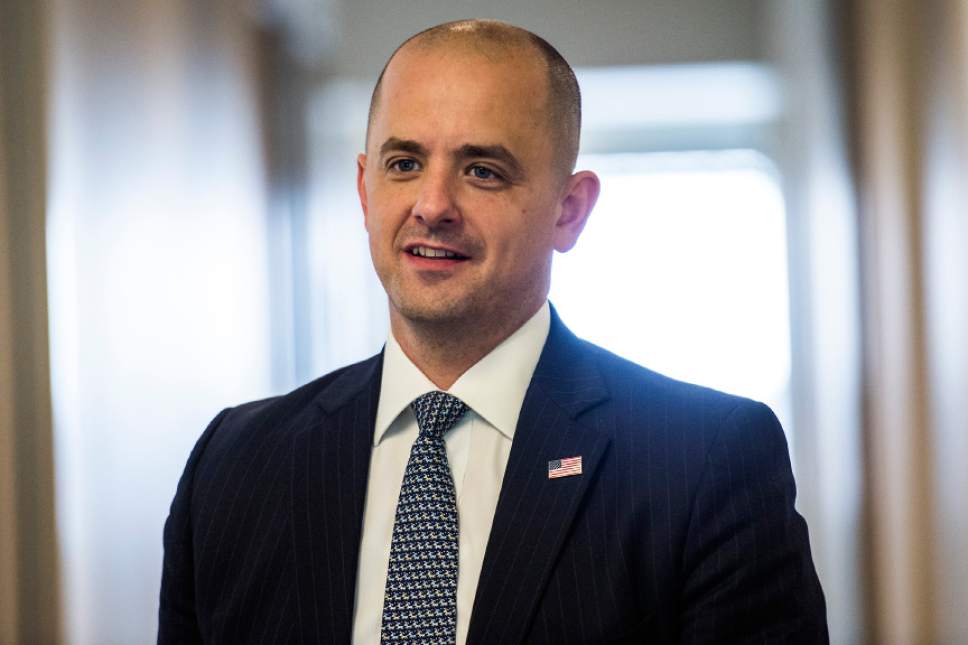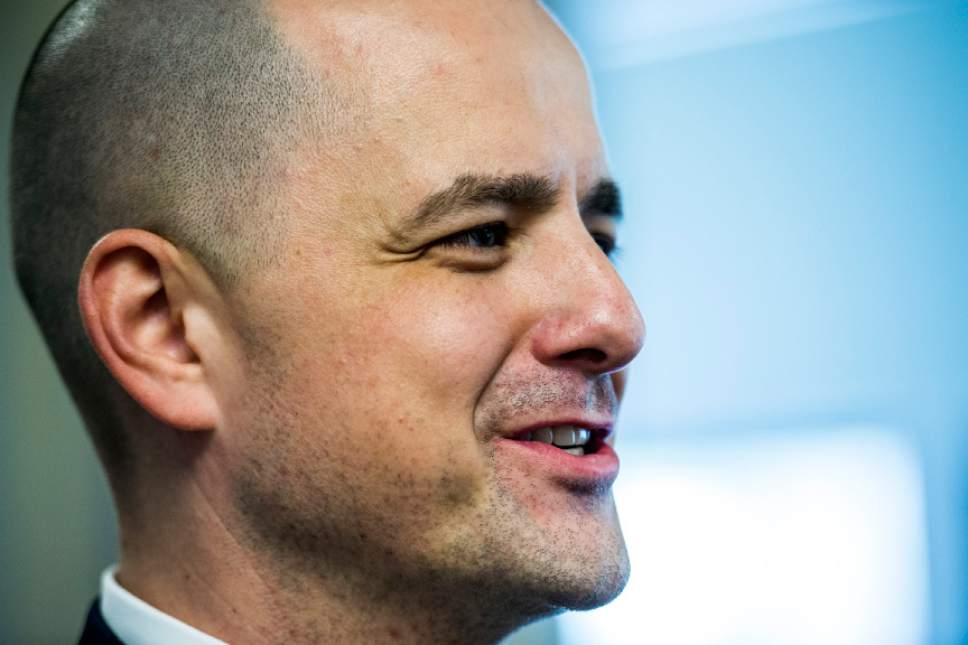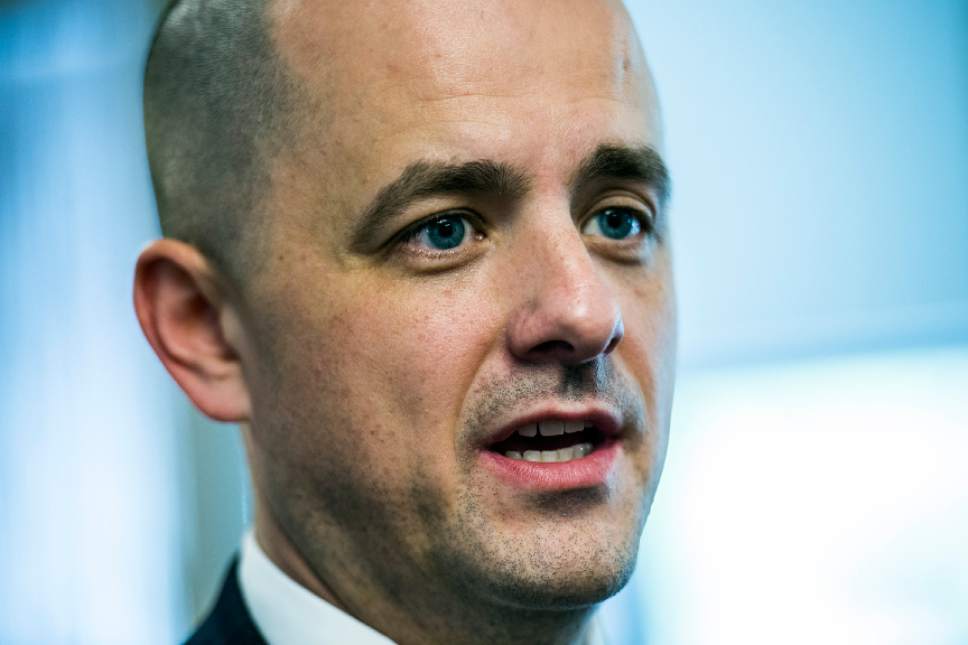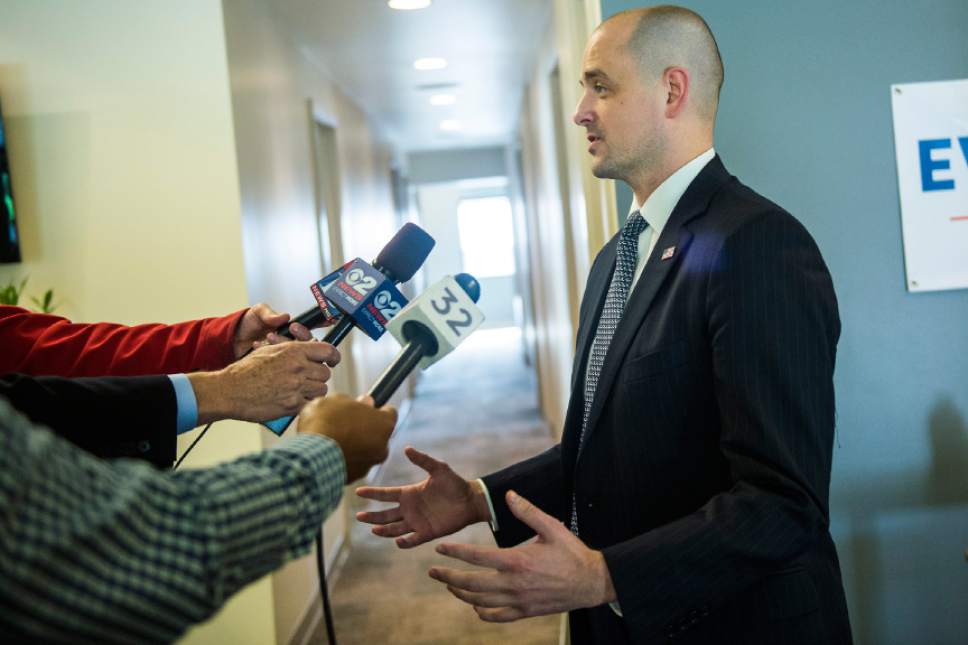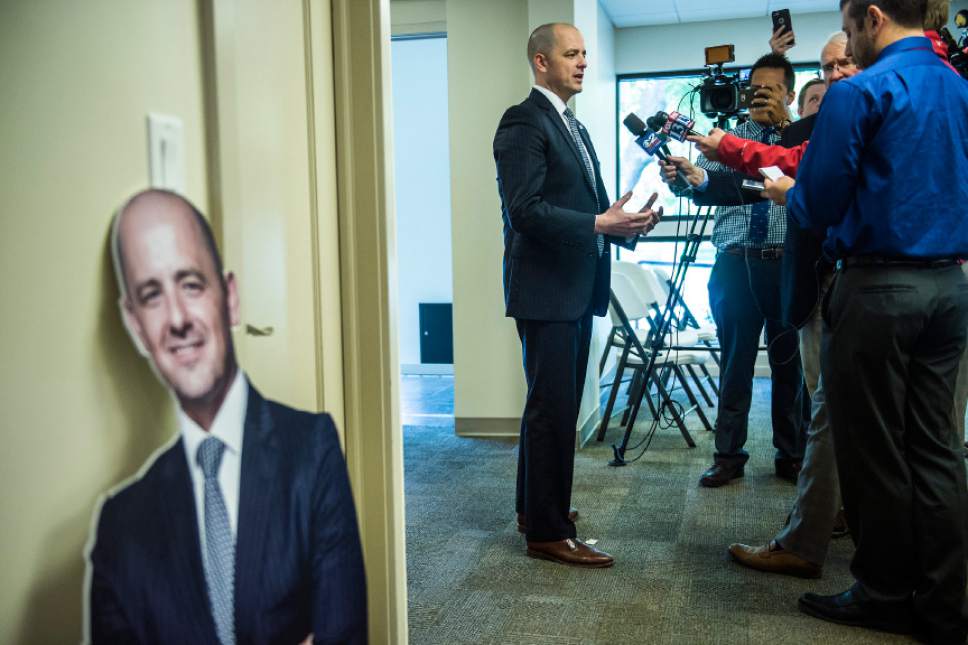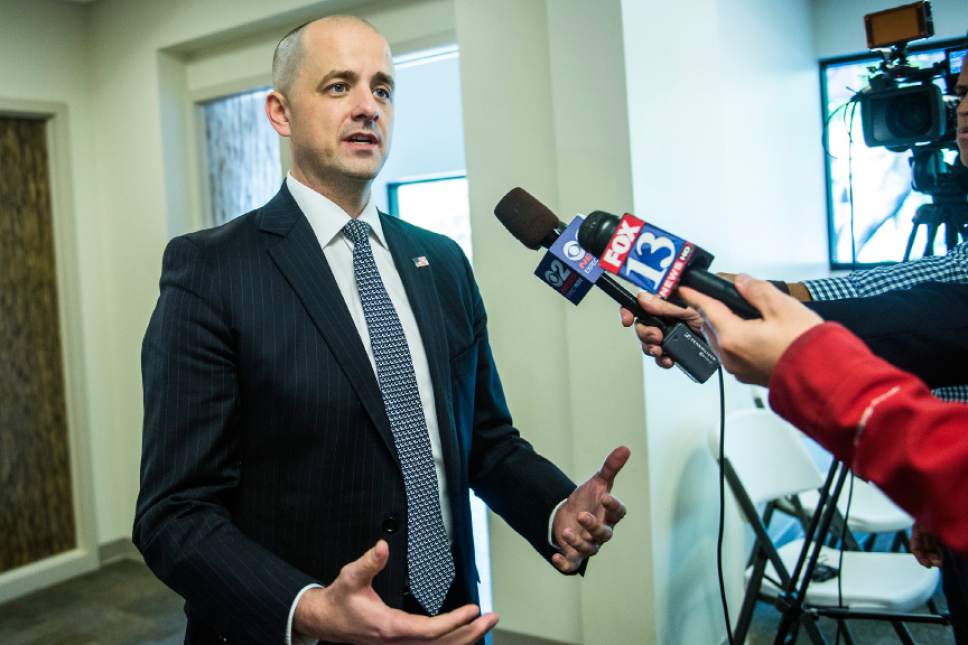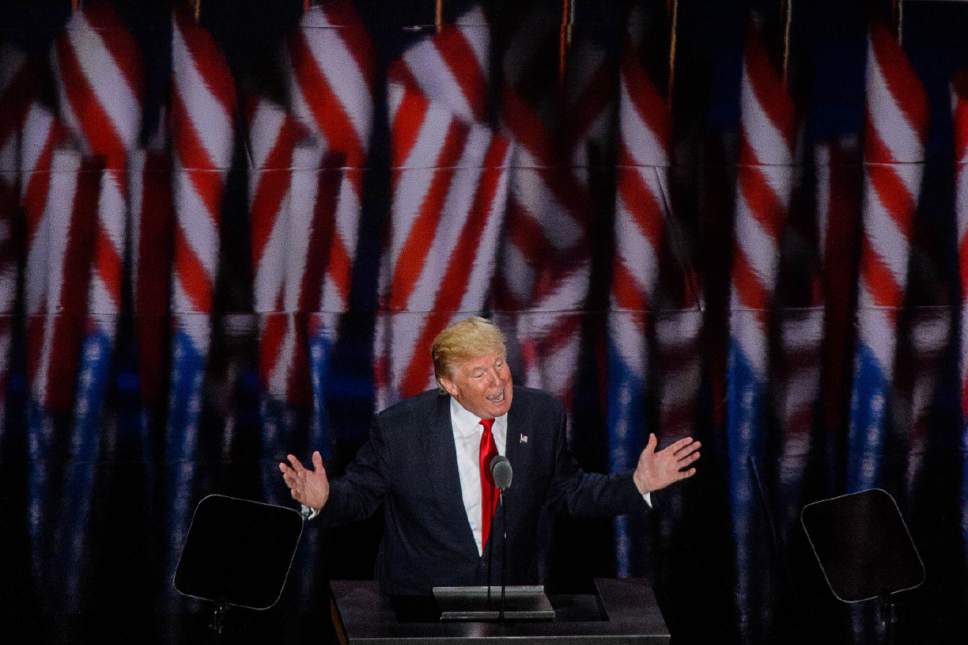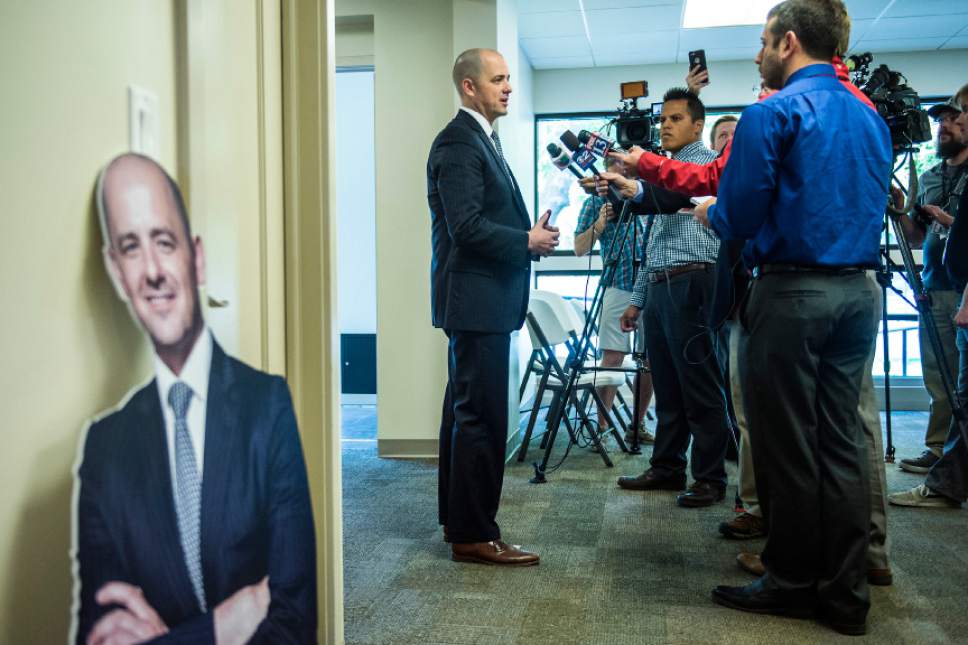This is an archived article that was published on sltrib.com in 2016, and information in the article may be outdated. It is provided only for personal research purposes and may not be reprinted.
Independent Evan McMullin is surging in Utah and Donald Trump is falling in the days after the release of a video showing the Republican presidential nominee bragging that because he is a star he can grope women without their consent.
A new poll by the Utah firm Y2 Analytics found Trump and Democrat Hillary Clinton tied at 26 percent, while McMullin came in at 22 percent, a statistical tie among the three candidates. Libertarian Gary Johnson received 14 percent, roughly on par with where he has been in past surveys.
The damaging "Access Hollywood" video was first reported by The Washington Post on Friday and resulted in some top Utah Republican leaders abandoning their party's presidential nominee. Among them: Gov. Gary Herbert, Sen. Mike Lee and Reps. Jason Chaffetz and Mia Love.
The Y2 poll found 55 percent of all respondents supported their move, though Republicans are split, with 46 percent saying they should reject Trump and 46 percent saying they should continue to back him.
"It seems that Republicans are in an internal civil war here in Utah," said Scott Riding, a pollster with Y2 Analytics, who was not paid by a client to conduct the poll.
Utah has long been a sure-fire Republican win, but not in 2016. It appears those who have left Trump largely have migrated to McMullin, a Provo-born former Republican congressional staffer and CIA agent who has headquartered his independent, anti-Trump bid in Utah.
A mid-September Salt Lake Tribune-Hinckley Institute poll had Trump at 35 percent and McMullin at 12 percent. That poll also showed Clinton at 25 percent, which appears to be a firm bloc of voters in the Democrat's camp.
"We are the only conservatives in this race. It is sad but true," McMullin told Utah reporters Wednesday, saying he was "humbled" by his surge in the survey.
He said his Utah ties — he is a Mormon who graduated from Brigham Young University — "maybe helps a bit," but he added that his campaign is taking off here because of his positions. He's anti-abortion, pro-trade and wants to shift more authority to the states.
So far, his only notable Utah endorsement is from former Lt. Gov. Greg Bell, though he invited other prominent Utah Republicans to follow suit.
"It is a good first step for a leader to repudiate Donald Trump and his candidacy, his misogyny, his bigotry, his lack of suitability in general for the presidency," McMullin said. "But I would invite all leaders to not just say what they are against, but what they are for."
McMullin was a bit surprised to see his support spike so quickly. So was Riding, who said: "Personally, I don't know much about the McMullin candidacy."
McMullin's relative strength is impressive since 48 percent of poll respondents didn't know who he was and 11 percent of those who did had no impression of him.
Among Mormons, McMullin received 33 percent of the vote, while Trump came in at 28 percent.
He is now on the ballot in 11 states, including Utah. His long-shot candidacy is based on the premise that he might be able to prevent either Trump or Clinton from getting the 270 electoral votes necessary to win the White House. To do that, he would need to capture at least one state. So far, Utah appears to be his best shot. He would be the first candidate from outside the two major parties to secure electoral votes since 1968.
McMullin said Trump "has lost this race to Hillary Clinton," but he offers an alternative for those who want to "stand up for the fundamental ideals on which this country was founded."
As this stage, though, McMullin's support is softer than that of Clinton or Trump. The poll found 21 percent said they would definitely vote for Clinton, 18 percent said they would definitely vote for Trump and 10 percent said the same for McMullin.
McMullin was poised to appear at a town hall Wednesday evening in Logan. Johnson, who also has headquarters in Utah, plans to focus more on the state as well.
The Clinton camp is giving Utah another look as well, releasing a "Mormons for Hillary" video seeking to connect with disaffected LDS Republicans.
Jenny Wilson, a Salt Lake County Council member and key Clinton supporter, argued that only the Democratic nominee and Trump have any realistic chance to be president and voters should pick between the two of them.
"This is a competitive race in Utah now," she said. "Those of us supporting Secretary Clinton want voters to take a look at what she has accomplished and to take a look at her leadership and knowledge on domestic and international issues. When they do ... they'll go in her direction."
Clinton appears to be the biggest beneficiary of the fight among Utah's conservative voters, said Jason Perry, director of the Hinckley Institute of Politics at the University of Utah. Republicans are now split four ways among Trump, McMullin, Johnson and those who will write in a name, such as Mitt Romney, the 2012 Republican nominee, who is beloved in Utah. That gives Clinton a chance in one of the most conservative states in the nation.
"You cannot find anything in the history books to look for as a guide to what is happening right now," Perry said. "This is unlike anything we have seen."
Write-in votes won't be counted unless the candidate registers. Fifteen people have done so, though none of them is well known.
Trump is unlike any presidential candidate in history. He's had an unmatched ability to get media attention, both positive and negative.
The poll found that 64 percent of Utahns had watched the lewd video and another 30 percent heard about it. Of those who are aware of the video, 37 percent said they now think worse of Trump. And more than half those aware of the video (51 percent) said Trump should drop out of the race.
He was already unpopular in the state, and this survey showed his unfavorability rating at 71 percent. Clinton was seen as equally unfavorable.
The poll includes 500 likely voters and was conducted Oct. 10 and 11. It has a margin of error of plus or minus 4.38 percentage points.


